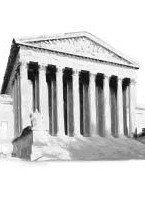Felsefe Tarihi Araştırmalarında Kullanılan Dijital Araçlar ve Metotlar
Dijital Beşerî Bilimler, Felsefe Tarihi, Metin Analizi, Stilometri, Konu Modelleme.
Digital Tools and Methods in Studies on History of Philosophy
___
- Alfano, M. (2018). Digital humanities for history of philosophy: A case study on Nietzsche. In Research Methods for the Digital Humanities (ss. 85-101). London: Palgrave Macmillan, Cham.
- Botz-Bornstein, T., & Mostafa, M. M. (2017). A corpus-based computational analysis of philosophical texts: Comparing analytic and continental philosophy. International Journal of Social and Humanistic Computing, 2(3-4), 230-246.
- Buzzetti, D., & Saisó, E. P. (2017). The Pico Project: Looking ahead. Humanist Studies & the Digital Age, 5(1), 12-23.
- Catana, L. (2015). Intellectual History and the History of Philosophy: Their Genesis and Current Relationship. A Companion to Intellectual History, (ss. 127-140). London: Wiley. Cernin, D. (2016). Methodology of the History of Philosophy: A Different Approach to the Philosophy of Heraclitus. International Issue, 4 (1), 32-53.
- Chalmers, D. J. (2015). Why Isn't There More Progress in Philosophy? 1. Philosophy, 90(1), 3-31.
- Drucker, J. (2013). Intro to Digital Humanities: Introductio. UCLA Center for Digital Humanities, 26(1), 1-24.
- Edelstein, D. (2016). Intellectual history and digital humanities. Modern Intellectual History, 13(1), 237-246.
- Eder, M., Rybicki, J., & Kestemont, M. (2016). Stylometry with R: a package for computational text analysis. The R Journal, 8(1).
- Forest, D., & Meunier, J. G. (2005). NUMEXCO: A Text Mining Approach to Thematic Analysis of a Philosophical Corpus. Digital Studies/Le champ numérique, (11).
- Gogora, A. (2015). The Methodology of Computing Utilization in Philosophy. Erişim Tarihi: 06.06.2022 (https://hapoc2015.sciencesconf.org/file/Gogora.pdf).
- Graham, S. (2016). Exploring big historical data: the historian’s macroscope. London: Impreial College Press.
- Hockey, S. (2004). The history of humanities computing. A companion to digital humanities, (ss. 3-19). London: Wiley.
- Işıklı, Ş. (2014). Büyük veri, epistemoloji ve etik tartışmalar. AJIT-e: Bilişim Teknolojileri Online Dergisi, 5(17), 89-122.
- Köntges, T. (2020). Measuring Philosophy in the First Thousand Years of Greek Literature. Digital Classics Online, 1-23.
- Ledger, G. R. (1989). Re-Counting Plato a Computer Analysis of Plato's Style. Oxford: Clarendon Press.
- Moretti, F. (2005). Graphs, maps, trees: abstract models for a literary history. London: Verso.
- Moskowich, I., (2016). 'The Conditioned and the Unconditioned': Late Modern English texts on philosophy. incl. CD-rom: A Corpus of English Philosophy Texts (CEPhiT). Amsterdam: John Benjamins Publishing Company.
- Pence, C. H., & Ramsey, G. (2018). How to do digital philosophy of science. Philosophy of Science, 85(5), 930-941.
- Stagnaro, A. (2020). "The Italian Jesuit Who Taught Computers to Talk to Us". Kettering: National Catholic Register.
- Wrisley, D. J. (2016). Modeling the Transmission of al-Mubashshir Ibn Fātik’s Mukhtār al-Ḥikam in Medieval Europe: Some Initial Data-Driven Explorations. Journal of Religion, Media and Digital Culture, 5(1), 228-257.
- Yayın Aralığı: Yılda 2 Sayı
- Başlangıç: 2002
- Yayıncı: Bursa Uludağ Üniversitesi
Yeni Türk Sinemasında Değer Arayışları: Değer Yaratmak ya da Bunun İçin Uygun Koşulları Oluşturmak
Platon’un Sofist Diyaloğu Üzerine Bir İnceleme
Mehmet ÇİÇEK, Mehmet Fatih ELMAS
Toplum Sözleşmesi Teorilerine Hegel’in Eleştirisi
Filozof, Sezar ve İsa: Nietzsche’de Egemen Olarak Geleceğin Filozofu
Felsefe Tarihi Araştırmalarında Kullanılan Dijital Araçlar ve Metotlar
GODOT’YU BEKLERKEN VE BECKETTVARİ ABSÜRT ANLATIM
Ekosofinin Fenomenolojik Gelenekle İlişkisi Üzerine
